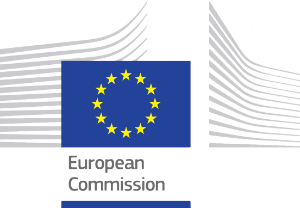Museums and local communities
The engagement of local communities with cultural heritage (CH) has been identified in the context of the research conducted during the ReInHerit project as a strategic issue for museums and heritage sites. Local communities are considered as a key stakeholder in the CH sector. There is an ever-increasing need for CH professionals to establish a deep connection and relationship with their local. It is clear that community support is of vital importance for the sustainable management of CH and the survival of most of the museums and heritage sites around Europe. CH professionals are particularly eager to interact with their communities, to play crucial roles in their lives, and establish themselves as relevant and valuable assets to them.
What challenges do museums face in engaging local communities?
When museums and heritage sites are working with local communities, they are facing many challenges. Some of these challenges can be summarised as follows:
-
Demographics are changing faster than ever, making societies more racially and ethnically pluralistic. Therefore, engaging local communities is more complex.
-
Lack of specific resources and skills within the organisation.
-
Museum leadership and staff are not always committed to engaging local communities with CH.
-
Lack of appropriate funding and support.
-
For local communities intangible heritage is a prerequisite of their livelihood and existence. Traditionally more focus has been placed on tangible heritage than on intangible heritage by museums and heritage sites.
-
There is a problem in finding the right balance between preserving the character of the local community but, at the same time, ensuring the sustainability and authenticity of the tourist product as well.
-
Over-dependency on tourism: In many places, tourism is taken for granted and not enough attention is paid to the local public.
How can museums address these challenges?
Recommendations
-
Set Community Involvement Action Plans (or Community Engagement Strategies). These plans need to:
- be relevant to the community
- cover a certain period of time (three to five years)
- be aligned with the organization’s mission and overall Cultural Heritage Management Plan.
-
Adopt the perspective of the understanding and participatory museum with a horizontal approach to interaction.
-
Train CH professionals in marketing and communication.
-
Train in how to engage local populations in order to connect collections and themes to a local context. The goal is to provide added value, which can be relevant to local societies.
-
Promote membership schemes in order to foster loyalty and ensure return visits. In addition, associations of Friends of Museums create links between museums and the communities.
-
Make CH organisations’ offerings relevant to local visitors by involving locals and including locally significant themes.
-
Connect CH organisations to schools, universities, community organisations.
-
Collaborate with local authorities and policy makers.
-
Make the local community, co-creator of thematic exhibitions related to locally significant themes.
-
Organize special events in non-working hours, during the evening or at night, because locals work during the day.
-
Expand the opening hours of the CH organisations to make them accessible to local people who work in the morning.
-
Translate interest in CH into products and service offerings that appeal to local and global audiences. Training in branding is important.
-
Make museums and heritage sites more relevant and appealing by introducing activities from the creative sectors (e.g., dance, art, music and themes from everyday life, street culture).
-
Use of social media and technologies.
-
Use creative museum marketing ideas.
-
Tell the history in a way that is relevant to the local community.
-
Engage volunteers, create the sense that museums and heritage sites belong to the local communities and work in partnership.
-
Give audience a role in the decision-making process of museums and other cultural organizations or sites.
-
Organise community-curated exhibitions.
-
Invite local collectors to display their own collections in the way they want to.
-
Give floor to local interest groups to present their own topic, providing new interests and variety for the visitors.
-
Invest to community engagement programmes, projects and services aiming at encouraging engagement with local audience.
-
Fill historic gaps in the collections or histories.
-
Become a communal reflection space (e.g., ask from communities for photos of any subject and create an exhibition).
-
Highlight under-represented voices.
-
Translate maps, promotional materials, educational guides, and exhibition labels into the languages spoken in the local communities.
-
Engage the local communities in telling their own stories.
-
Develop tools to help professionals run workshops with audiences to find out their needs/what is important to them in the local context.

